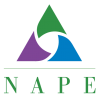Review the Theory and Evidence.
Recommendations and Strategies*
- Provide comprehensive professional development: Teachers who receive rich and sustained professional development, and professional development that is geared toward higher-order thinking skills and concrete activities, are more likely to engage in effective classroom practices.
- Stress professional development self-assessment: Train teachers on how to assess integrated practice.
- Utilize intervention programs for IT in formal education: A study at Ohio State found that school experiences, such as taking computer courses, and encouraging teachers impacted successful women in IT and indicated that formal schooling is a good place for intervention.
- Foster interest, as well as skill, in math and science: The National Center for Educational Research recommends a classroom environment that encourages curiosity and embeds efforts to sustain interest and relevance in math and science.
- Correct bias in curricular and professional materials: Adopting a framework for assessing curricular bias provides learning for teachers and students of all educational levels.
[pullquote align=”right”]The way in that curriculum is organized, sequenced, and prioritized may carry gender bias and prevent participation or completion of coursework leading to nontraditional careers. [/pullquote]
Effective Practices and Resources
- On the USDOE site, Doing What Works, you can learn what situational interest is and how it might transform into a long-term interest and view strategies designed to capture girls’ interest in math and science courses.
- Hang the poster called Guidelines for Identifying Bias in Curriculum and Materials from the Safe Schools Coalition and refer to it often.
- Gender Equity Tip Sheet from the Project Enter, University of Missouri-Columbia, contain numerous tips that can help you improve your programs.
- Curricular Detecting Skills by David M. Sadker and Karen Zittleman, discusses ways to detect and correct gender bias in your curriculum.
- Alice is software that teaches introductory computer science by allowing the user to actively construct new knowledge. It has been shown to improve persistence and skill in college freshmen and to increase retention for high-risk students (those with little to no programming experience. Learning about computer programming through ALICE is an example of an experience that can change the perception of a career that is nontraditional for women.
- Rosie’s Girls from Vermont Works for Women and the Technical Opportunities Program from Chicago Women in Tradesprovide pre-technical training that includes spatial awareness.
